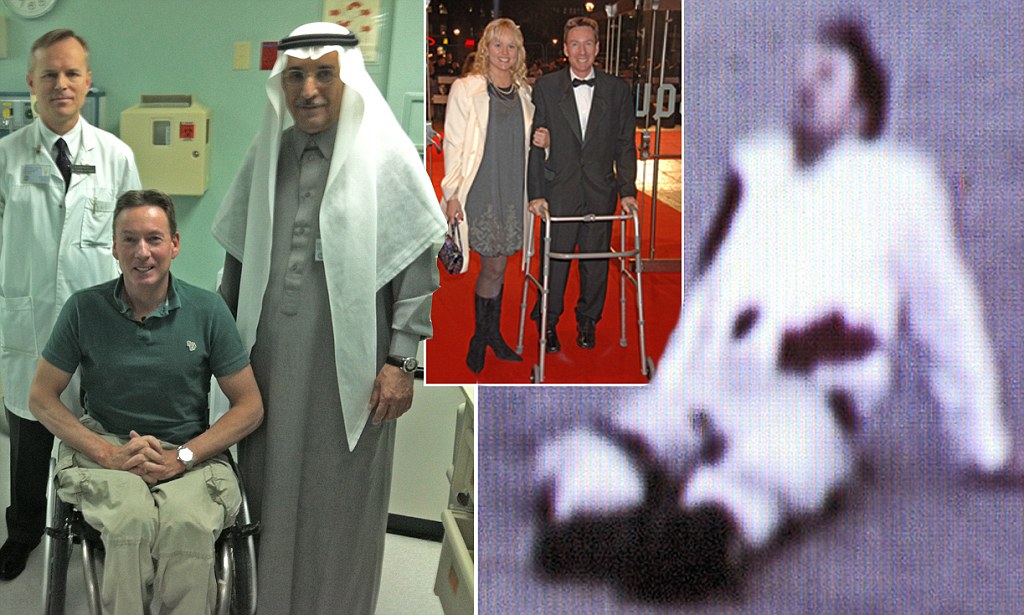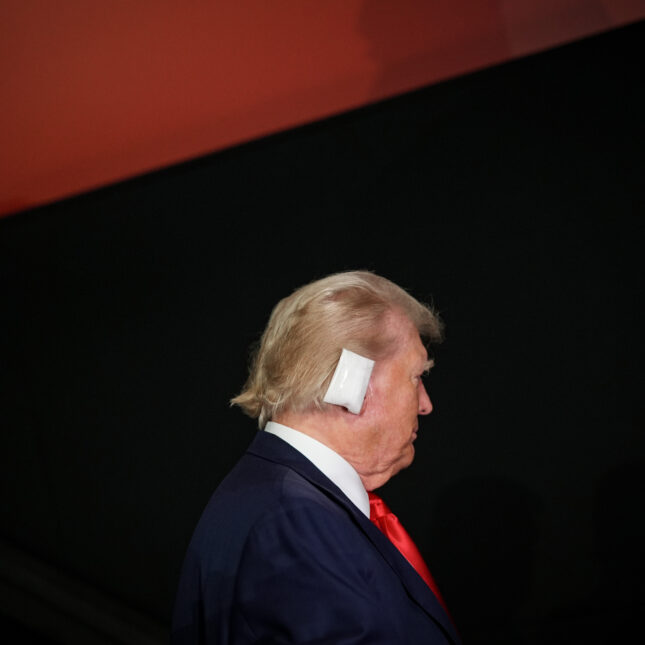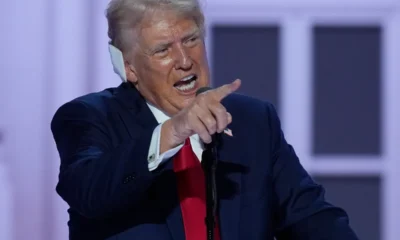CELEBRITY
FRANK GARDNER: Your gunshot injuries were not as serious as mine… but the scale of the trauma you still face is far greater

YOU don’t expect death to greet you with a smile, but the young man who walked towards me wore one as if we were long lost relations. As Security Correspondent for BBC News, I had been reporting from Saudi Arabia with cameraman Simon Cumbers and escorted by Saudi government minders.
We were filming in a residential district of the capital Riyadh in June 2004 when a car pulled up. The young man who climbed out and approached us offered a friendly greeting in Arabic. I returned the pleasantry, at which point he pulled out a pistol from a concealed pocket.
My smiling stranger was an Al Qaeda gunman set upon ambushing and murdering two Western journalists who had been working in a deeply conservative part of the city in what was a strictly Islamic country. I have relived the scene a few times since, but last weekend’s attempted assassination of Donald Trump has been yet another reminder – as if I needed one.
The obvious failure of the US Secret Service in protecting Trump has been laid painfully bare for the world to see. But, as someone who shares the grim experience of having been shot, I cannot help but see the human story that lies behind the global event. When shot, Trump swatted his ear as if stung by an insect.
If he was scared, he didn’t show it. But that is not entirely surprising because such incidents happen at warp speed. As I faced my would-be assassin, I could only marvel at how ancient the pistol in his hand looked, and if it even worked. Then the adrenaline kicked in and I took off, sprinting for my life. There was a loud bang from behind me and I felt a searing pain in my right shoulder.
I didn’t realize it at the time, but the gunman’s 9mm bullet had passed straight through my shoulder, something trauma surgeons call ‘a through-and-through’.
















